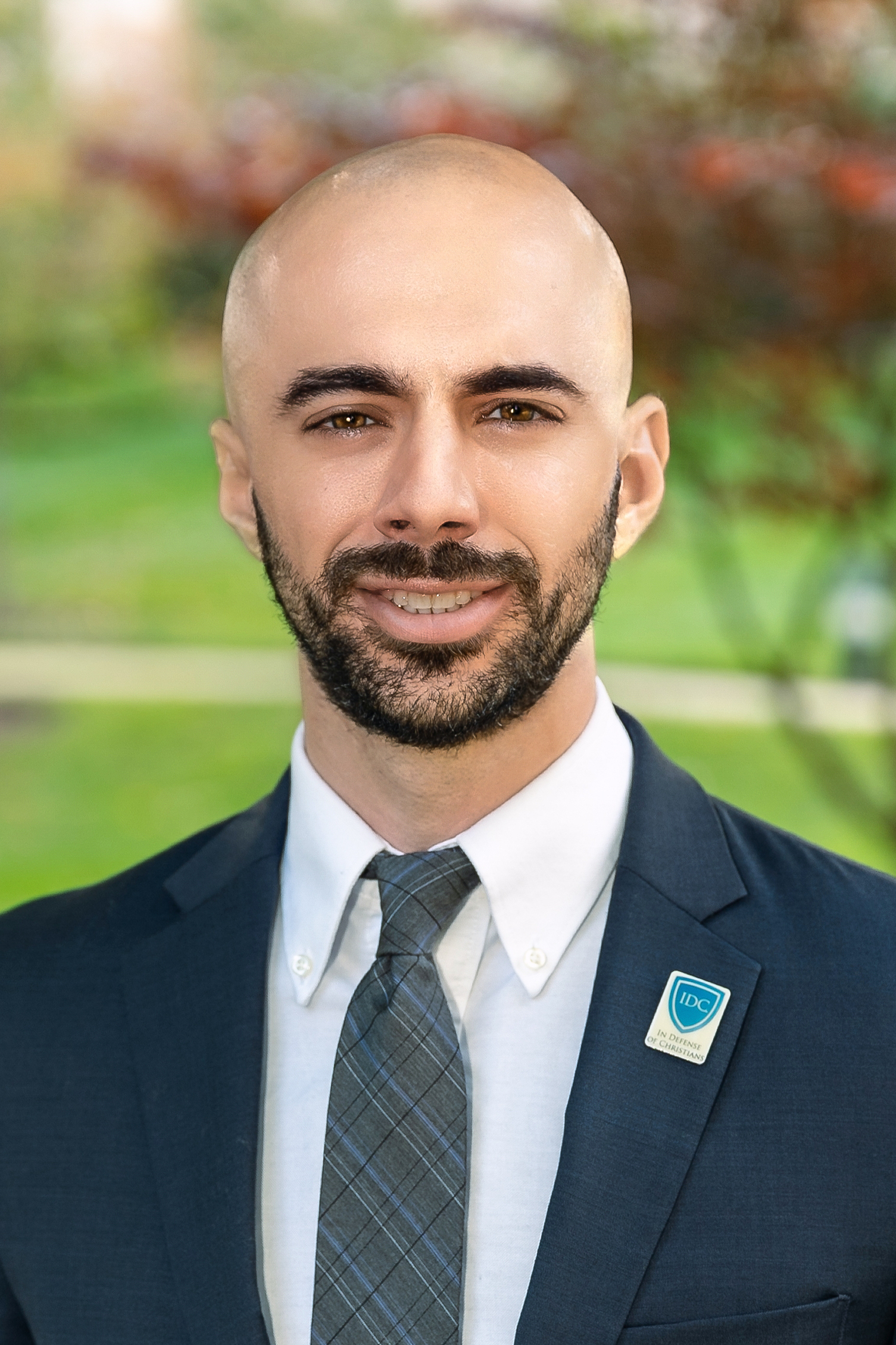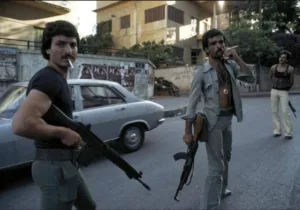Violence on the streets of Beirut on Thursday, October 14 reminded older Lebanese of their country’s tragic civil war.
Lebanon onlookers have been waving red flags for years. The country is home to the largest per-capita home of refugees in the world, suffers what the World Bank has called one of the worst financial crises since the mid-1880s, and has a level of government corruption so high that forming a new cabinet is an “accomplishment.”
The government has yet to investigate last year’s Port of Beirut explosion—which killed over 200 people and injured thousands of others—and has delayed the investigation twice, most recently on Tuesday, October 12. Hezbollah, a US-designated terrorist organization that has capitalized on Lebanon’s political corruption, is widely believed to be responsible for importing and storing the ammonium nitrate at the port.
Leading up to the clashes, Judge Tarek Bitar, the second judge to investigate the blast, has faced numerous obstacles to his inquiry from both Hezbollah and Lebanon’s political class.
Bitar attempted to interrogate former Finance Minister Hassan Khalil. When the latter refused to participate, Bitar issued a warrant for his arrest. Khalil and Member of Parliament Ghazi Zeitar filed the complaints, which triggered Tuesday’s delay of the probe. Bitar was up against an October 15 deadline because parliament would go back into session then and lawmakers would regain their immunity. Bitar also summoned former Public Works Minister Youssef Fenianos for questioning, though the latter didn’t participate in the complaint.
On October 14, Hezbollah and the Shia Amal Movement organized a demonstration at the Justice Palace, located in a Christian area of Beirut, to call for the removal of Bitar from the Port of Beirut investigation. Leading up to the protest, an appeals court refused Khalil and Zeitar’s request to have Bitar removed from the investigation.
At the demonstration, Hezbollah and Amal supporters were attacked by gunfire, which resulted in eight deaths and 32 wounded. Hezbollah accused the Lebanese Forces (LF), a Christian political party, of orchestrating the attack, an accusation which Samir Geagea, head of the LF, has denied. Fighting erupted around the Tayouneh and Badaro neighborhoods, home to many clashes during the Lebanese Civil War and which border a Shite neighborhood and a strong LF Christian neighborhood. Videos have also circulated online with Hezbollah marching through the streets with guns shouting “Shia, Shia,” and children sent home from school. The Lebanese Armed Forces (LAF)—the most trusted institution in Lebanon and a US partner—were deployed and stopped hostilities in the streets.
While Lebanon celebrates the fact it is the most religiously diverse country in the Middle East, with 18 recognized religious sects of almost every variety of every Abrahamic religion, sectarian tensions have often tragically been intense in the country. It also knows the pain of conflict, having experienced a brutal 15-year civil war from 1975–90. Since then, it has struggled to maintain what can only be described as a cold peace. The October 14 clashes indicate that the country could continue to deteriorate if Lebanese lawmakers do not deescalate sectarian tensions and combat endemic corruption. Many observers warn that another civil war in Lebanon, which borders both Syria and Israel, may be looming.
Washington has a constructive role to play, especially as it relates to supporting the LAF as a counterweight to Hezbollah, combating corruption, and providing humanitarian relief to the Lebanese people. The lessons from October 14’s clashes are clear: Lebanese lawmakers must prioritize reform. Moreover, as Ambassador Ed Gabriel (ret.), president of the American Task Force on Lebanon, has repeatedly warned, US lawmakers cannot continue to look to the Lebanon portfolio as an afterthought to an Iran policy, an Israel policy, or a Syria policy. Lebanon deserves its own policy from the Biden administration and Congress.
Lebanese lawmakers face two questions: Will they take a stand for the judiciary’s independence although powerful voices in the government are opposed to doing so? What will the repercussions be for Lebanese officials indicted in any future findings of Judge Bitar?
Following the firefight, the five ministers in the government representing Hezbollah and Amal announced they would boycott government meetings until Judge Bitar is removed. However, the Lebanese Judges Association stated that it would no longer accept cases calling for Bitar to be removed.
Under Secretary of State for Political Affairs Victoria Nuland, a senior Biden administration official at the State Department who departed Lebanon on the day of the clashes, announced $67 million in additional aid to the LAF, and stated that “terrorists and thieves have robbed [the Lebanese people] of hope for far too long.”
State Department Spokesman Ned Price similarly expressed that “we support Lebanon’s judicial independence. Judges must be free from violence, they must be free from threats, they must be free from intimidation, including that of Hezbollah.”
White House Press Secretary Jen Psaki further added that the White House “urge[s] Lebanese authorities to complete a swift and transparent investigation into the horrific explosion at the Port of Beirut.”
Similarly, Senator Jim Risch (R-ID), ranking member of the Senate Foreign Relations Committee, tweeted a statement of concern about “increasing levels of instability & attempts to curb judicial independence in #Lebanon. The investigation into the #Beirut port blast must continue free from #Hezbollah-backed political interference.”
Onlookers have warned about increasing instability in Lebanon in recent years. While the US has strongly supported security and humanitarian assistance for Lebanon, multiple administrations have attempted to pivot away from the Middle East to East Asia. The October 14 clashes are the latest reminder that proactive action must be taken immediately to alleviate the suffering of the Lebanese people and to reform their political system. The US must prioritize combating corruption and incentivize reform in Lebanon. The clock is ticking.
October 14’s clashes serve as a warning to policymakers in both countries. Lebanese lawmakers must come to terms with the fact that this is the time to stand against corruption and stand for transparency and reform. Washington lawmakers must come to terms with the fact that Lebanon deserves policy prioritization and that the US needs to take action now before the situation worsens.
Steven Howard is the Director of Policy and Outreach for the American Task Force on Lebanon, a leadership organization of Americans of Lebanese descent.







 Sponsor a student for Christianity & National Security 2024
Sponsor a student for Christianity & National Security 2024